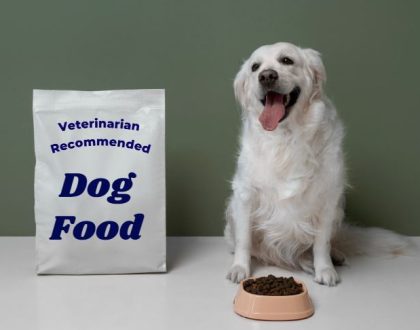
the scientific study of pet nutrition by veterinary nutrition specialists and experts.
Paging Dr. Google: Nutrition on the Internet

Computers can be both a blessing and a curse. For pet owners, the internet provides vast amounts of information on many subjects. The information, however, is virtually unregulated and its quality ranges from excellent to pure quackery. And this makes it difficult to decide which nutrition-related websites are trustworthy!
Pet nutrition is a popular topic on the internet, with thousands of websites, promoting everything from recipes for raw food and vegetarian diets; advertisements for supplements and holistic foods; recommendations for diets that allegedly prevent or cure disease; ‘get-rich quick’ pyramid-selling schemes for nutritional supplements; and consultation services operated by ‘nutritionists.’ Many home-made diets are promoted – some which are nearly nutritionally balanced and some that are downright dangerous!
All in all, many nutritional myths are perpetuated, many half-truths reinforced, and many incorrect facts conveyed. There is, of course, some excellent information – but not nearly as much of it as one would hope!
Surfing Tips
So how can you decide what to believe? Here are some recommendations to help you when evaluating the content of websites:
Discuss information with your veterinarian.
What you read online should enhance what your vet tells you, not replace it. If in doubt, ask him or her to help you evaluate it.
Read the website address.
Sites with an address ending in .com are commercial. Those ending in .edu are educational, those ending in .gov are government-related sites, and those ending in .org are nonprofit organizations. However, there are now more domain endings: .place, .pro, .plus, and many more. Some pet food companies have high-quality websites with good general nutrition information, but it is important to note the parts of the sites that are purely informational and those that are promotional information. Sites that perpetuate myths (link to our “best food for your pet page”) and prominently feature the “no list” (a list of foods that their diets do not contain that you should supposedly avoid, like corn, soy, by-product, etc) should be avoided.
Research the credentials of the site’s author.
Is it a pet owner; a company; a veterinarian; a PhD in animal nutrition, or a board-certified veterinary nutritionist? Be careful when a person marketing his or her services claims to be a ‘nutritionist’ or ‘pet nutritionist,’ as there is no standardization in training for this. The exceptions are someone with a PhD in animal nutrition or a veterinary nutritionist (link to our blog – what is a veterinary nutritionist), a person who is board-certified by the American College of Veterinary Nutrition (ACVN link to www.acvn.org) or the European College of Veterinary Comparative Nutrition (ECVCN link to http://www.esvcn.eu/college). These are veterinarians who have undergone several years of rigorous post-graduate nutrition training in approved residency programs and who have passed the ACVN or ECVCN’s certifying examination. Unfortunately, the majority of the popular websites that discuss pet nutrition are not managed by veterinary nutritionists (or even veterinarians with additional nutrition training) or by PhD nutritionists.
Watch out for rating websites.
Most websites that rank pet foods do so either on opinion or on criteria that do not ensure a good quality food (i.e., primarily based on myths and subjective information). It’s important to use more objective criteria (e.g., science, nutritional expertise, quality control – link to our “what should you look for in a pet food label” page) in judging a pet food. If a rating site seems to be using predominantly the ingredient list to rank diets, that is a red flag that they are likely relying only on superficial (and subjective) information.
Check the source of the information.
Do the authors simply state that a product ‘prevents cancer’ or is there a reference to a scientifically-conducted research study? It is easy – though illegal – to make unproven claims for diets or nutritional products but it is much harder to back them up scientifically. If a reference is provided to support the information, where is it from? Is it from the author’s own article or promotional literature or is it from a peer-reviewed veterinary journal? Most products on the internet do not cite studies to back up their claims. When a study is cited, it often is one from human or rodent studies which may not be relevant to dogs and cats.
Check the timeliness of the information.
Things change quickly in veterinary medicine and especially in the field of nutrition. Many websites are out of date. What was recommended two years ago may not be accepted practice today. A good website will be updated frequently.
Be wary of anecdotal information.
Descriptions of one person’s experience can be misleading (e.g. ‘When my cat was diagnosed with kidney disease I gave him ‘SUPERCAT’ nutritional supplement and now he’s cured’). While it can be useful to hear about other people’s experiences, their positive evaluations do not mean that the actual product or treatment is really beneficial. And other pet owners’ opinions are not a safe way to select a diet. Always discuss what you’ve heard with your veterinarian.
Be skeptical of grand claims or easy answers to difficult problems.
Remember the old adage: If it sounds too good to be true, it probably is.
If you are a critical web surfer and work with your veterinarian to analyze the information you find, you will reap the benefits of the computer age without experiencing its problems.
Want to read more information on feeding your pet?
Subscribe to always know when we add new material!
Recommended Posts

Can Diet Help With My Dog’s Seizures?
January 18, 2024

The Most Popular Holiday Foods…That Your Pet Should Avoid!
December 08, 2023

Veterinarian Recommended Pet Foods: What You Need to Know
November 05, 2023

